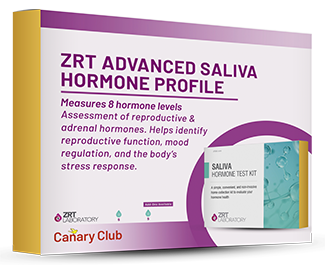There is one mystery mineral, literally called "the miracle of life," that’s the subject of a lot of new studies and shows tremendous promise to help prevent and even manage osteoporosis. Plus, it turns out that the general population may be deficient in magnesium.
The Mystery Mineral: Magnesium
According to the NIH: “Magnesium is the fourth most abundant mineral in the body and is essential to good health. Approximately 50% of total body magnesium is found in bone.”
It turns out that for healthy bones, you need magnesium just as much as you need calcium and vitamin D. If you are deficient or taking one without the other, you can create serious deficiencies which are harmful to your body.
Think of magnesium as a transporter. If you don’t have enough of it and too much calcium, which is a bone mineralizer, you’ll not only get cramps and constriction, which can cause anxiety, hypertension and panic attacks, you won’t help prevent or manage your osteoporosis.
Another way to think of calcium and magnesium together is that it takes calcium to make your muscles contract and magnesium to make them relax.
Magnesium acts as a sort of sedative against cramps and constriction and allows the proper amounts of calcium to get transported into your bones.
Dr. Christine Northrup even recommends putting Epsom salts in your bath water, which is magnesium sulfate, although this alone won’t give you enough magnesium.
Just as I was writing this, I remembered that I put Epsom salts in my bath water whenever I have sore muscles, and now know why I become relaxed – it’s the magnesium.
Why Are People Magnesium Deficient?
There is a lot of controversy over magnesium deficiency, but in many ways, it’s easy to understand why people might be deficient. In fact, Carolyn Dean, M.D., author of "The Magnesium Miracle," says that 80% of the U.S. population is deficient in magnesium.
For starters, do you know of anyone who takes their calcium in the form of antacids? Not only do they not get enough calcium, but there is also no magnesium to transport the calcium.
Does that same person have other ailments like high blood pressure, muscle cramps, etc.?
Doctors know that antacids are made of calcium, yet there is no magnesium to transport the calcium into the bones. This sets off a whole chain of other health problems, so while antacids may serve a purpose in the short term for your stomach upset, they certainly are not the best way to get the amount of calcium you need to prevent or manage osteoporosis.
Here are some other signs of possible magnesium deficiency:
- Do you experience anxiety?
- Are you depressed?
- Do you have insomnia?
- Do you have high blood pressure?
- Are you tired all the time?
- Do you have high cholesterol or take statin drugs?
- Do you get tense and angry fairly often?
- Do you experience muscle pain?
- Do you take birth control pills? (Have been shown to deplete magnesium.)
- Are you constipated?
Yes, these are also symptoms of fibromyalgia, hormone imbalances, and many more possibilities, but they are also good clues that you may not be getting enough magnesium.
Whenever you’re tense and tight, you have some information that you may not have the right amount of magnesium in your body.
What about getting magnesium from your food? Just like every other food, you will get some magnesium from dark, leafy vegetables and the like, but how much do you absorb? Can you even eat enough of the foods that have magnesium to get the proper two-to-one ratio of calcium and magnesium to prevent osteoporosis?
In general, the answer is no, which is why we have millions of men and women with osteoporosis. The lack of weight-bearing exercise, improper diets, and the other risk factors mentioned last month, go a long way toward understanding how to prevent osteoporosis.
Depending on your age, doctors are recommending up to 1,200 mg of calcium and up to 600 mg. of magnesium to prevent or manage osteoporosis.
Imagine this. One tablespoon of almonds has 33 mg. of magnesium. And those numbers get worse when you boil the minerals out of your possibly already frozen vegetables, or they are grown in mineral-depleted topsoil.
I think you get the picture. Taking supplements that you absorb, (bioavailable) may be the only way to get what you need to prevent osteoporosis.
How Much Magnesium Is The Right Amount?
Magnesium also increases bone density but can’t do its job if you don’t have the right ratio with calcium. Most doctors recommend at least a two-to-one ratio and say taking 1200 mg. of calcium, should be matched with 600 mg. of magnesium.
Of course, if you’re younger or older, you need to adjust the amounts of both, and always check with your doctor before starting any new supplement routine.
Canary Club has a wide variety of at-home hormone and neurotransmitter tests from which to choose. These can indicate imbalances that cause or exacerbate chronic anxiety. This information is a great first step on the path to long-term well-being. Here is a short list of recommended tests: Canary Club is the place where you can come to better understand your condition, whether it is mild, moderate, or severe. Our goal is to help you find the information you need in order to effectively manage stress and live a more vibrant and vital life.
ZRT Advanced Saliva Profile
 See our ZRT Advanced Saliva Profile to check your adrenal and reproductive hormone levels.
See our ZRT Advanced Saliva Profile to check your adrenal and reproductive hormone levels.
Advanced Saliva Test Kit Includes:
- Estradiol (E2), Progesterone (Pg), and Testosterone (T) - known as the three major sex steroid hormones,
- Adrenal Hormones:
- DHEA-S (DS), and,
- Diurnal Cortisol (sampled 4x), showing your full daily cortisol cycle.
Canary Club Advanced Saliva Hormone Profile is also known as ZRT Saliva Profile III.
Available Add-ons:
You will be able to include these add-ons during the ordering process for the Advanced Saliva Profile.
Available add-ons: E1 Estrone and E3 Estriol
Additional Stress-Related Tests
- Cortisol Awakening Response
- Adrenal Stress Test
- Diurnal Cortisol 4x
- Women's Sex & Stress Hormone Panel
Additional Resources:
References;
https://ods.od.nih.gov/factsheets/Magnesium-HealthProfessional/
https://www.drperlmutter.com/magnesium-deficiency-symptoms-causes-treatments/

